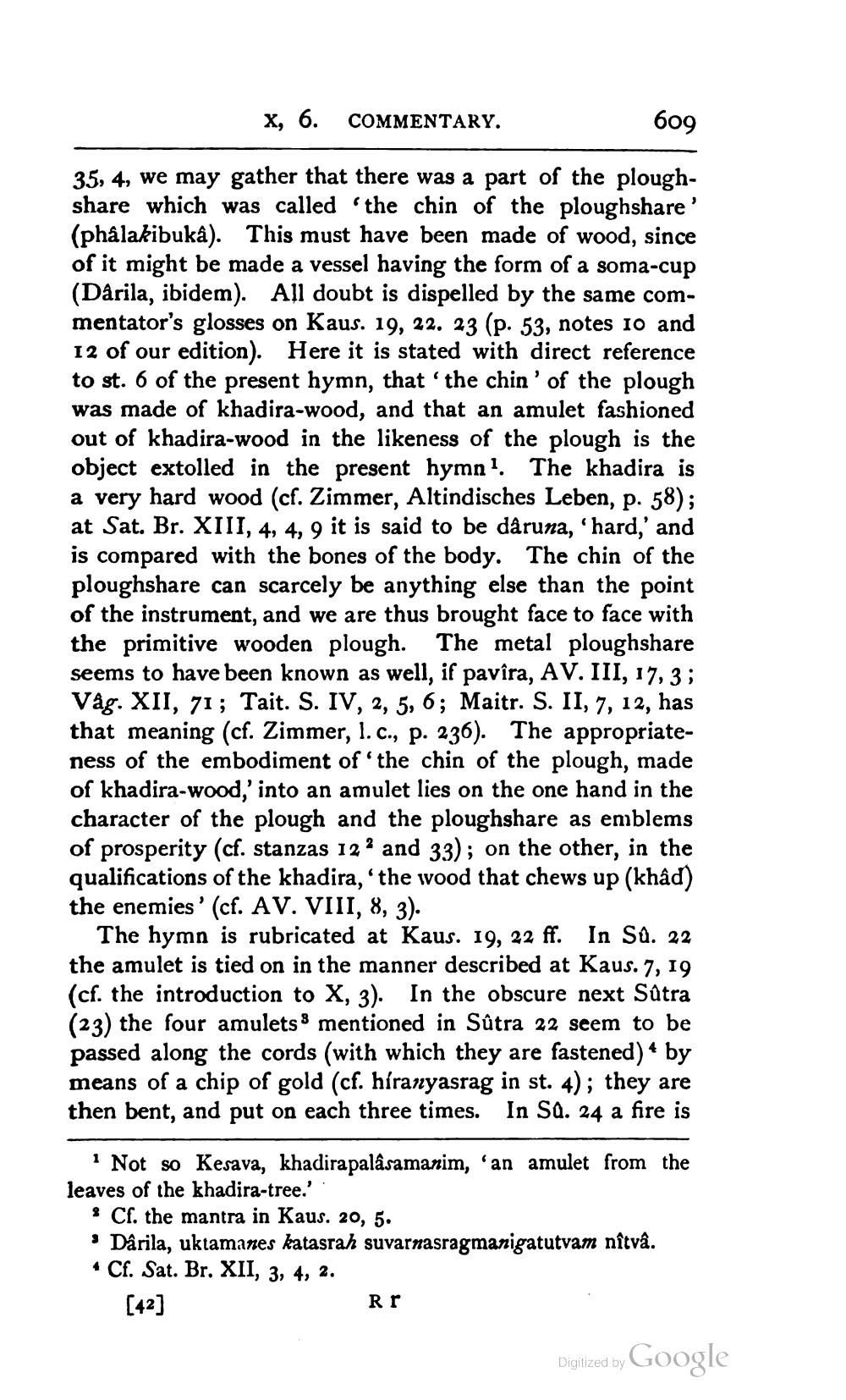________________
X, 6. COMMENTARY.
609
35, 4, we may gather that there was a part of the ploughshare which was called the chin of the ploughshare' (phầlakibuka). This must have been made of wood, since of it might be made a vessel having the form of a soma-cup (Darila, ibidem). All doubt is dispelled by the same commentator's glosses on Kaus. 19, 22. 23 (p. 53, notes 10 and 12 of our edition). Here it is stated with direct reference to st. 6 of the present hymn, that 'the chin' of the plough was made of khadira-wood, and that an amulet fashioned out of khadira-wood in the likeness of the plough is the object extolled in the present hymn! The khadira is a very hard wood (cf. Zimmer, Altindisches Leben, p. 58); at Sat. Br. XIII, 4, 4, 9 it is said to be dâruna, 'hard,' and is compared with the bones of the body. The chin of the ploughshare can scarcely be anything else than the point of the instrument, and we are thus brought face to face with the primitive wooden plough. The metal ploughshare seems to have been known as well, if pavîra, AV. III, 17, 3; Våg. XII, 71; Tait. S. IV, 2, 5, 6; Maitr. S. II, 7, 12, has that meaning (cf. Zimmer, 1.c., p. 236). The appropriateness of the embodiment of the chin of the plough, made of khadira-wood,' into an amulet lies on the one hand in the character of the plough and the ploughshare as emblems of prosperity (cf. stanzas 12 2 and 33); on the other, in the qualifications of the khadira, the wood that chews up (khâd) the enemies' (cf. AV. VIII, 8, 3).
The hymn is rubricated at Kaus. 19, 22 ff. In Sa. 22 the amulet is tied on in the manner described at Kaus. 7, 19 (cf. the introduction to X, 3). In the obscure next Sutra (23) the four amulets : mentioned in Sûtra 22 seem to be passed along the cords (with which they are fastened) * by means of a chip of gold (cf. híranyasrag in st. 4); they are then bent, and put on each three times. In Sa. 24 a fire is
* Not so Kesava, khadirapalåsamanim, 'an amulet from the leaves of the khadira-tree.''
. Cf. the mantra in Kaus. 20, 5. · Dârila, uktamanes katasrah suvarnasragmanigatutvam nîtvå. • Cf. Sat. Br. XII, 3, 4, 2. [42]
RI
Digjized by Google




